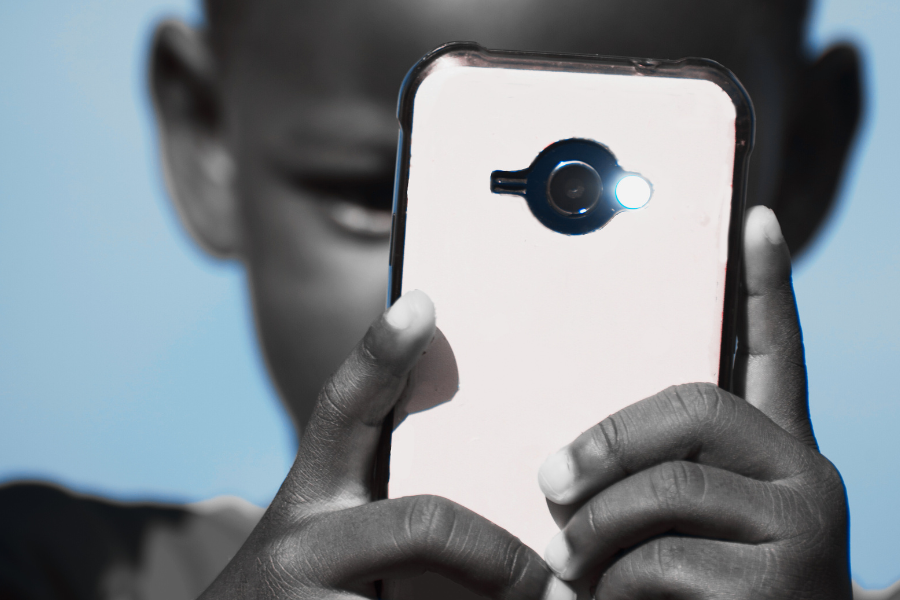Global discussions about Generation Alpha are dominated by Western and high-income perspectives. They describe a generation “born digital,” growing up with smartphones, tablets, and streaming services — shaping household spending through “pester power” and consuming more media than ever before.
These ideas drive global marketing strategies and digital advertising frameworks, which are often developed in and for high-income markets. That’s understandable — global brands chase global money. But the same frameworks don’t neatly fit Africa’s social and economic realities, where internet access, educational technology, and digital health awareness remain deeply uneven.
Across much of the continent, digital learning is still a privilege, and reliable research on children’s online wellbeing is scarce. The picture of a screen-immersed “digital native” is far less universal than global narratives suggest — and that gap matters for anyone trying to understand or reach Africa’s next generation.
Understanding the African Consumer
To succeed in digital marketing in Africa, brands must first understand the African consumer. Reliable data is limited, regional research is fragmented, and much of what marketers know comes from Western reports and internet narratives that we adapt — often uncritically.
Africa is already becoming the world’s youth epicenter. According to the Population Reference Bureau (PRB), by 2030 young Africans are expected to make up 42% of the world’s youth. This demographic shift makes it essential to rethink who these young Africans really are and what “digital native” means in an African context.
Digital Natives — or Digitally Aware?
The term “digital native” doesn’t translate evenly across the continent. In Africa, most children are not born with devices in their hands. Gen Alpha here represents youth in transition — growing up amid rapid urbanisation, expanding mobile connectivity, and unequal access to education and technology.
While Gen Alpha globally might be “born digital,” in Africa, most are digitally aware but not universally digitally immersed. As of 2023, only about 25% of Sub-Saharan Africa’s population uses mobile internet, despite more than 60% being covered by a 3G or 4G network (GSMA, 2023). Many children experience digital life through shared family phones, school programs, or community centers — not through personal devices.
The EdTech Reality in Africa
EdTech in Africa surged during COVID-19, accelerating adoption by several years. The Next Einstein Forum (NEF) reported major spikes in 2020 — Google Classroom usage up 400% globally, Kenya’s Zeraki Learning jumping from under 1,000 to over 100,000 downloads in a month, and South Africa’s Siyavula platform seeing similar growth.
Yet NEF warned that “EdTech is yet to deliver on its promise. It favors those who already have access, marginalizing those who do not.” That remains true today: despite the growing African e-learning market, connectivity and affordability still limit scale, with many public schools offline.
Some African innovators are working to close this gap. Ubongo — a Tanzania-based social enterprise — reaches more than 32 million families across 23 countries through accessible, educational media in local languages. Platforms like uLesson (Nigeria) and Eneza Education (Kenya, Ghana, Ivory Coast) are also expanding mobile and low-data learning options.
Still, these solutions “barely scratch the surface.” For many African children, access to digital learning marks a first exposure — making Gen Alpha the continent’s first generation of digital learners, not yet lifelong digital natives.
Culture, Content, and Identity
Africa’s Gen Alpha is growing up in a postcolonial, globalized media ecosystem, where cultural identity blends local traditions with global digital culture. Western media still dominates children’s content, but African creators are changing the landscape.
Brands like Ubongo, Akili Kids!, and Triggerfish Animation are developing local digital ecosystems that reflect African languages, values, and everyday realities.
The Missing Conversation on Health and Wellbeing
Discussions about Gen Alpha’s mental health — screen addiction, anxiety, attention spans — are largely based on studies from Western countries.
UNICEF notes that while African youth are increasingly online, “data gaps remain significant in understanding how digital engagement affects wellbeing and safety” (UNICEF, 2025).
So when local commentators describe African Gen Alpha as “screen addicted,” it’s fair to ask — which continent are they observing?
The Takeaway for Marketers
To win Africa’s next generation of consumers, marketers must move past imported frameworks.The brands that succeed will do three things:
- Recognize unequal digital access. Connectivity, device ownership, and data costs vary dramatically — which means your ideal “digital native” might still experience the internet intermittently.
- Base campaigns on local data and behaviors. Invest in regional research, field testing, and audience listening — don’t assume global norms apply.
- Honor cultural hybridity. Young Africans live dual worlds — global content and local stories. Campaigns should let them move between both, not force one over the other.
As McKinsey notes in its work on digital transformation, gains come to organizations that build for scale and resilience, not just early adopters. In Africa, that means designing campaigns that work in low-bandwidth, shared device, language-sensitive environments.
In short: To connect with Gen Alpha in Africa, brands must listen harder, be contextually humble, and adapt their playbooks to local realities — not just import them.
Article in French you can read HERE.
References
- GSMA — New Insights on Mobile Internet Connectivity in Sub-Saharan Africa: gsma.com↗
- Africa’s Future: Youth and the Data Defining Their Lives: prb.org↗
- Next Einstein Forum — EdTech2 Report (2020): nef.org↗
- Market Data Forecast — Africa E-Learning Market Report 2024–2033: marketdataforecast.com↗
- Ubongo — Official Website: ubongo.org↗
- uLesson — Official Website: ulesson.com↗
- Eneza Education — Official Website: enezaeducation.com↗
- AUDA-NEPAD — African EdTech 2030 Vision Plan: nepad.org ↗
- UNICEF — Childhood in a digital world. Screen time, digital skills and mental health 2025. unicef.org↗
- McKinsey — Africa’s leap ahead into cloud: Opportunities and barriers 2024. mckinsey.com↗


.png)

